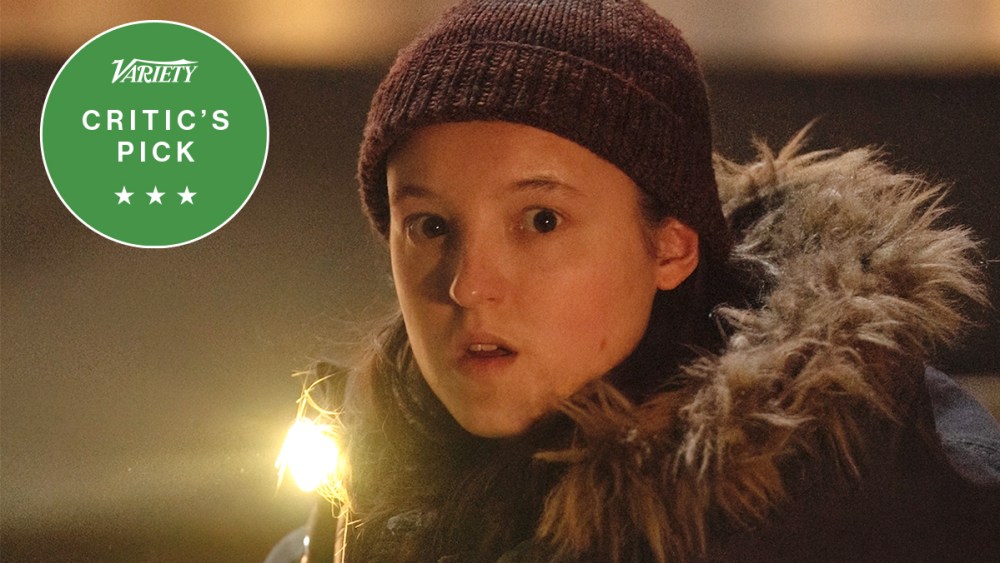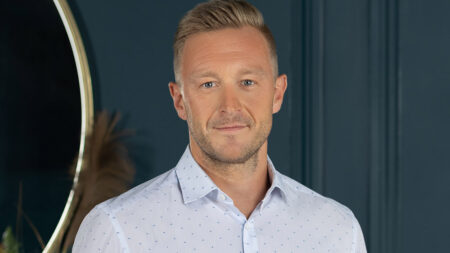Technically, Season 2 of “The Last of Us” begins where Season 1 left off. Before they settle down in Jackson Hole, Wyoming, now repurposed from a ski resort into a refuge from the zombies infected by the Cordyceps fungus ravaging a post-apocalyptic America, smuggler Joel (Pedro Pascal) lies to Ellie (Bella Ramsey), his living cargo turned de facto adopted daughter. Joel swears to Ellie he’s telling the truth about the decimation of a hospital in Salt Lake City. According to Joel, thieving raiders descended while Ellie was unconscious, even though viewers of the HBO drama — and before that, players of the hit video game — know the truth: that Joel went on a rampage after realizing the doctors’ attempts to extract a cure from the Cordyceps-immune Ellie would kill her. The expression on Ramsey’s face suggests Ellie might know, too, whether or not she admits it to herself.
After this reprise, “The Last of Us” jumps forward five years. But the opening scene underlines just how much Joel’s rash, deadly, selfish, ferociously loving decision hangs over these beloved characters. Its ripple effects set the plot of the seven-episode season into motion. Before that, though, they affect Joel and Ellie’s relationship and set the tone for the season’s two central dichotomies: on the one hand, vengeance versus mercy; on the other, what we do for ourselves versus what we do for others, and whether it’s always possible to tell the difference. The new focus makes for an even grimmer version of a show that could already be a difficult watch, but allows Ramsey in particular to evolve their protagonist from a wise-cracking kid to a deeply scarred young adult.
Creators Craig Mazin (“Chernobyl”) and Neil Druckmann, who also co-created the original game, continue to hew tightly to their source material in Season 2. Where “Fallout,” the other breakout game adaptation to premiere since “The Last of Us” wrapped its first run over two years ago, has to furnish its inherited world with an original story, “The Last of Us” was already unusually narrative-driven by the standards of its original medium. The difference in its sophomore outing is that the first game, an extended road trip with a defined origin and destination, lent itself well to a standalone season. For reasons I am forbidden from spoiling but are well-known to fans of the games, “The Last of Us: Part II” demands a more bifurcated structure — which means Season 2 is transparently a part rather than a whole, even before its cliffhanger ending. (The abbreviated episode count compared to the nine-part Season 1 is the first indication.)
Of course, “The Last of Us” is enough of a critical and commercial hit to warrant both fans’ patience between installments and a multiseason investment by HBO. The series remains a feat of production, from the lushly overgrown abandoned cityscapes to the gorgeous natural scenery to the hordes of Infected, especially in a harrowing battle episode directed by network stalwart Mark Mylod (“Succession,” “Game of Thrones”). But Season 2 trades the momentum of the journey from Point A to Point B for a carefully constructed sense of place. Like its protagonists, “The Last of Us” hits pause on the wandering to put down some roots.
Before its status quo is violently disrupted, we come to know Jackson Hole as a fledgling sprout of civilization in an uncivilized world. There’s a barter economy, a patrol system and a democratic local government, with Joel’s brother Tommy (Gabriel Luna) and sister-in-law Maria (Rutina Wesley) as de facto leaders of an elected council. As an adult, Ellie is expected to pitch into this fragile community, training under dutiful citizen Jesse (Young Mazino, building on his “Beef” buzz) and scouting for Infected with her best friend Dina (Isabela Merced), also Jesse’s on-again, off-again girlfriend. In return, Jacksonites can move up the hierarchy of needs from pure survival to sessions with Gail (the great Catherine O’Hara), the town therapist who Joel sees about refreshingly normal problems like his teenager wanting nothing to do with him. The reasons for that tension are the furthest thing from normal — and initially, are kept obscure from the viewer. With Ellie’s immunity a tightly guarded secret, though, Gail doesn’t have to know that.
If Season 1 built on the game by fleshing out figures Joel and Ellie encountered on their travels, most memorably the couple played by Nick Offerman and Murray Bartlett, Season 2 expands Jackson itself. (“The Last of Us” has always dealt in Western tropes; this season’s is the frontier settlement beset by outside threats.) By the time Abby (Kaitlyn Dever), a survivor of the Salt Lake City massacre, sets her sights on the village, the stakes of an intruder on this hard-won oasis are clear.
Abby is the most consequential character introduced in Season 2 — hence the widely touted casting of Dever, one of the more accomplished working actors under 30. Yet Dever is a surprisingly marginal presence here, billed as a guest star and deployed sparingly. It’s Merced, amid Ellie’s falling out with Joel, who becomes Ramsey’s primary scene partner. In lieu of wary circling between two spiky misanthropes, we get warm, goofy chemistry among two kids forced to grow up too soon. Joel and Ellie have their moments this season, but fans will have to wait for them, and pay a hefty emotional toll besides.
As is standard on “The Last of Us,” the Cordyceps zombies are as much of a threat as the power vacuum they’ve left where society once stood. Without laws, humans are forced to decide for themselves what constitutes justice or just plain revenge. As Ellie navigates this in her own life, a trip to Seattle plunges her into a war between a renegade militia and a pre-modern religious cult, with both sides attempting to claim the moral high ground. (Jeffrey Wright plays the militia leader, reprising his role from the game.) Joel is far from the only person to make the wrong choice for the wrong, if painfully understandable, reasons, and post-outbreak kids like Ellie have grown up with few other ways of living modeled for them. It’s a grim reality, but one “The Last of Us” renders with conviction.
Season 2 of “The Last of Us” will premiere on HBO and Max on April 13 at 9 p.m. ET, with remaining episodes airing weekly on Sundays.
Read the full article here








